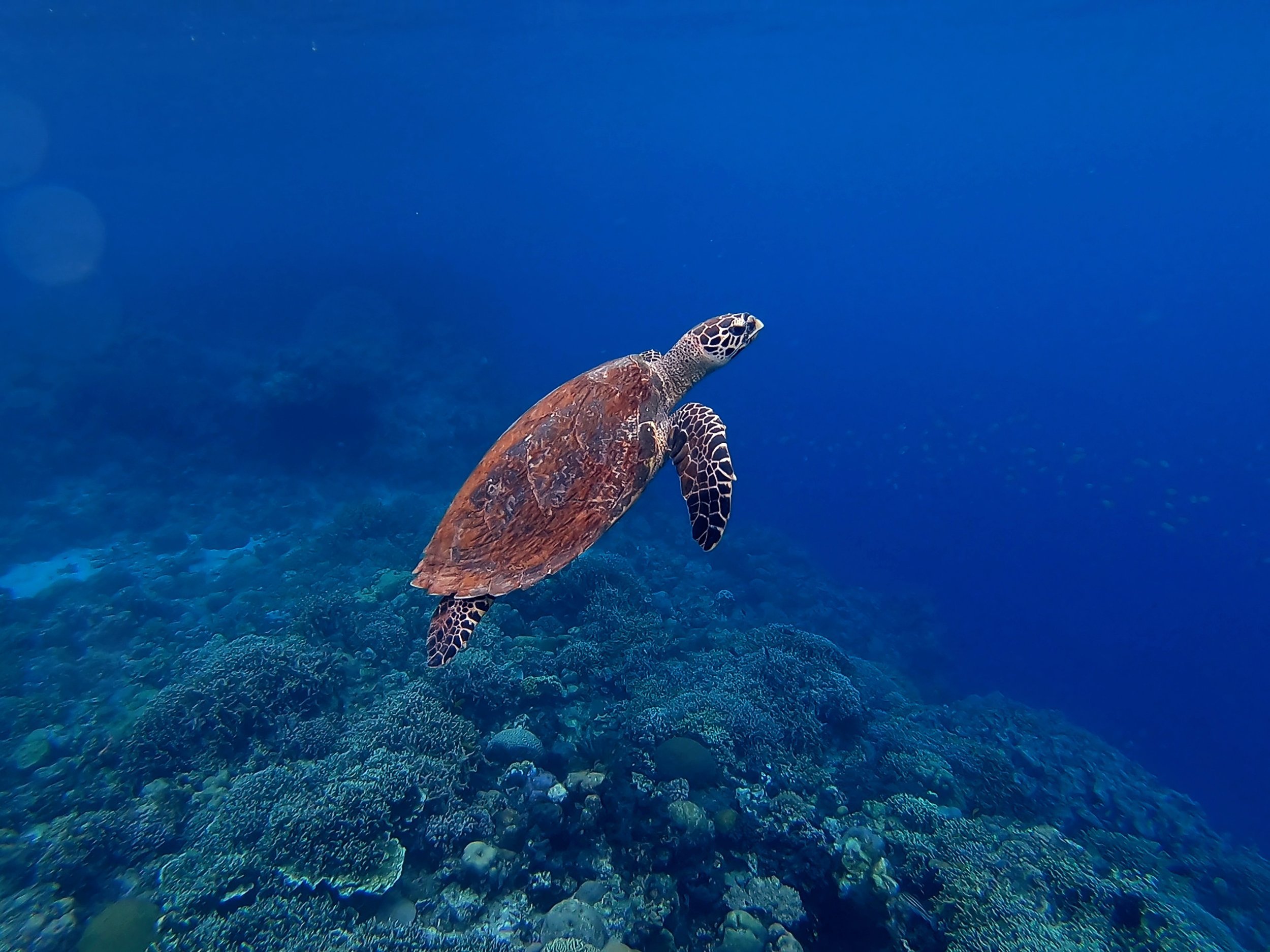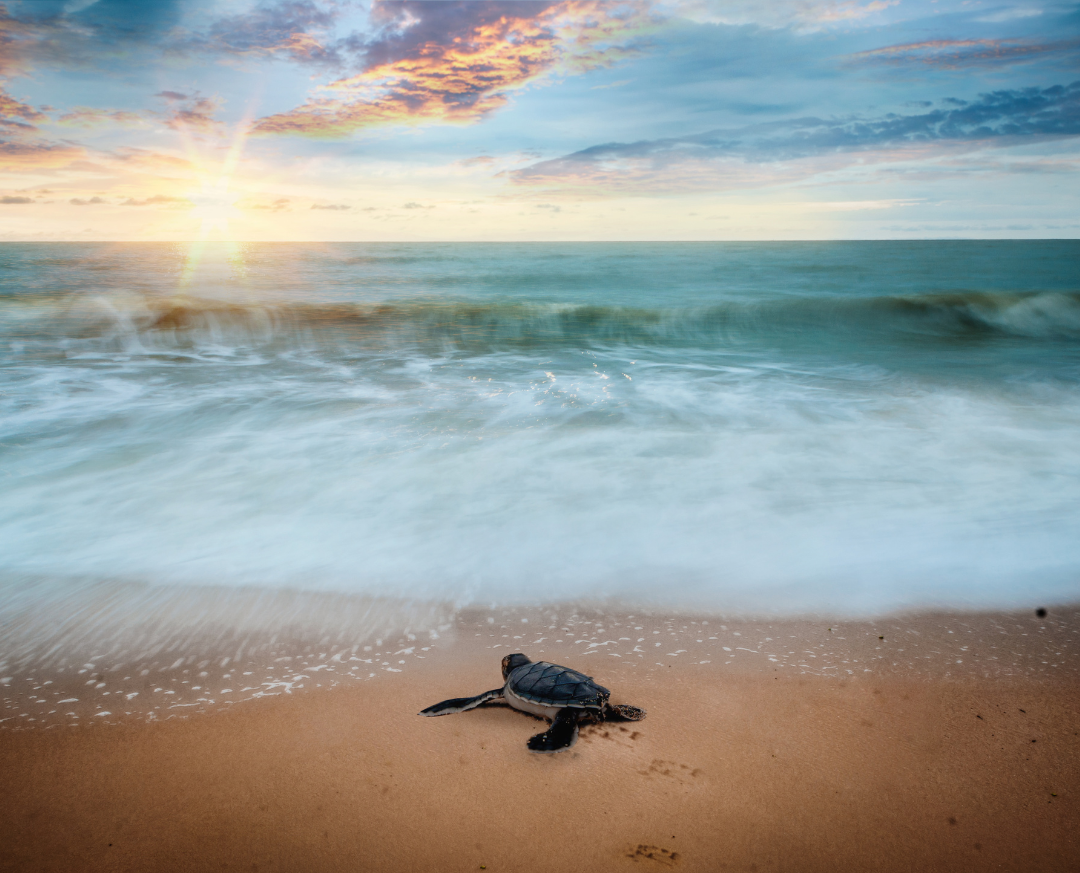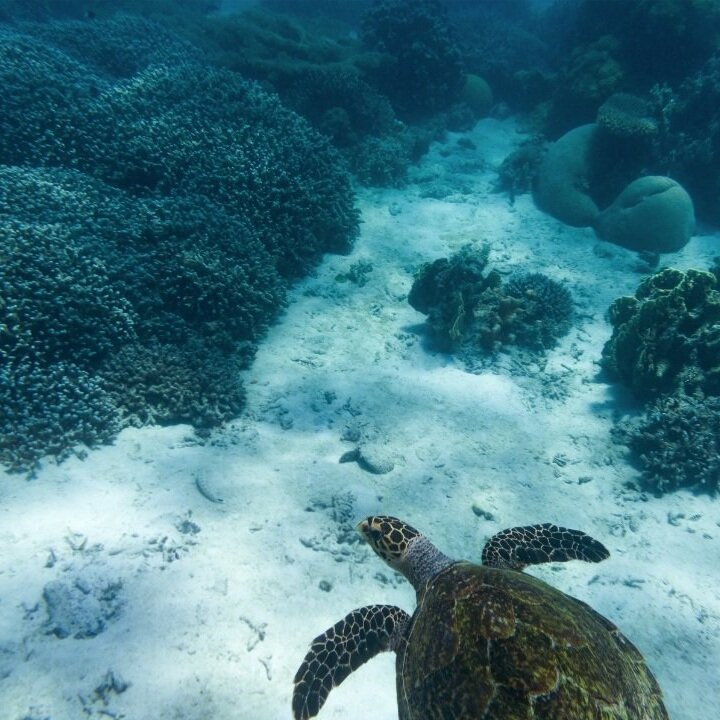Zanzibar's Sea Turtles: Diving into Turtle Conservation on World Oceans Day
As the turquoise waters of Zanzibar gently lap against its pristine shores, a fascinating natural spectacle unfolds each year. Welcome to the turtle nesting season, a magical time when endangered sea turtles grace the island's beaches to lay their precious eggs. Join us as we dive into the wonders of this extraordinary event and the conservation efforts in place to protect these magnificent creatures.
Turtle Nesting Season in Zanzibar
Zanzibar's turtle nesting season typically occurs between January and June, drawing nature enthusiasts and conservationists from around the world. The island's sandy beaches become nesting grounds for three main species:
The Green Turtle
(Chelonia mydas)
The Hawksbill Turtle
(Eretmochelys imbricata)
Olive Ridley Turtle
(Lepidochelys olivacea)
During this period, female turtles emerge from the crystal-clear ocean at nightfall, instinctively seeking the same beach where they were born decades ago. With great care and determination, they dig deep nests in the sand using their powerful flippers, depositing their precious eggs one by one.
Turtle Hatching Season in Zanzibar
After a two-month incubation period, tiny hatchlings, driven by an innate sense of direction, emerge from their sandy nests, guided by the moonlight reflecting on the ocean's surface. They embark on an epic journey towards the sea, overcoming countless obstacles and predators, as they begin their own remarkable life cycle.
The turtle hatching season in Zanzibar typically occurs from February to July, with peak months being March and April. However, It's important to note that turtle hatching is a natural process, and the exact timing can vary each year and from beach to beach. The hatchings are influenced by factors such as temperature, moon cycles, and other environmental conditions.
Turtle Conservation in Zanzibar
The nesting season poses significant challenges for sea turtles in Zanzibar, as coastal development, pollution, fishing, and climate change threaten their habitats and disrupt their nesting patterns. These activities put eggs and hatchlings at risk of poaching, predation, and accidental damage caused by human actions. To address these issues, various conservation initiatives have been established in collaboration with local organizations, governmental agencies, and international partners. Their tireless efforts focus on safeguarding nesting sites and raising awareness among both local communities and visitors.
Under the Wave is actively engaged in the conservation of turtle and coastal environments in Zanzibar, providing valuable volunteering opportunities for those visiting the island. Volunteers have the unique chance to contribute to the protection and enhancement of turtle populations in Matemwe, renowned for its breathtaking beaches. Working closely with local marine biologists, they actively participate in the Matemwe Marine Turtle Hatchery, ensuring the safe release of turtles into the ocean and engaging in coral reef monitoring activities. The program also encompasses community environmental education, waste management initiatives, and even coral farming for certified divers.
Through their dedicated efforts, volunteers make a significant impact by conducting beach patrols, educating the local community, and participating in beach clean-ups. These hands-on experiences not only contribute to the conservation of Zanzibar's turtles but also provide invaluable knowledge and skills in marine conservation and preservation.
Responsible Turtle Tourism in Zanzibar
When visiting the beautiful island of Zanzibar, it is crucial to approach turtle tours responsibly and prioritize the well-being and conservation of these incredible creatures. Engaging in activities like swimming with turtles in captivity or feeding them may seem appealing, but they can have negative consequences for the turtles wellbeing and their natural habitats. Instead, there are alternative ways to observe and appreciate these majestic creatures while ensuring their long-term survival.
Volunteering with Genuine Conservation Organisations
One of the most impactful ways to support turtle conservation is by volunteering with organizations that are actively involved in genuine conservation efforts, such as Under the Wave. By offering your time and skills as a volunteer, you can directly contribute to the protection and preservation of their natural habitat. It is an opportunity to learn about their behavior, participate in vital conservation projects, and make a positive impact on their future.
Ethical Snorkeling or Diving Excursions
When selecting a tour operator for snorkeling or diving excursions, it is essential to choose one that offers ethical tours where turtles are known to frequent. These operators prioritize the well-being of the turtles and their natural behavior. Ethical tours emphasize the importance of maintaining a safe distance from the turtles to avoid causing them stress or altering their natural habitat. It's important to remember that wild animals like turtles should not be approached or touched, as they require undisturbed environments to thrive. While there is no guarantee of turtle sightings during these tours, respecting their space and observing them from a distance allows for a more authentic and responsible interaction.
By prioritizing the protection and preservation of Zanzibar's turtles, we contribute to the rich biodiversity of our planet and ensure the survival of these remarkable creatures. Let us celebrate their presence and work together to create a sustainable future, where Zanzibar's majestic sea turtles can continue to grace our oceans with their ancient beauty. Feel free to contact Haydar Experiences for more information and to explore responsible tour options.







